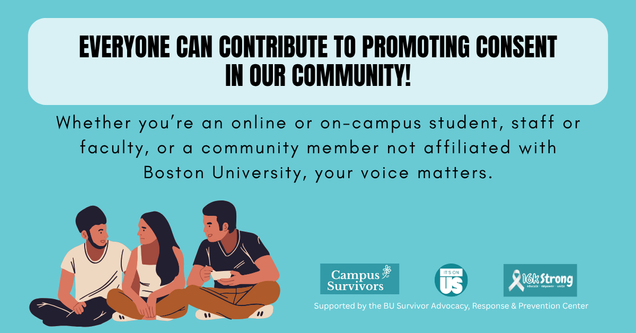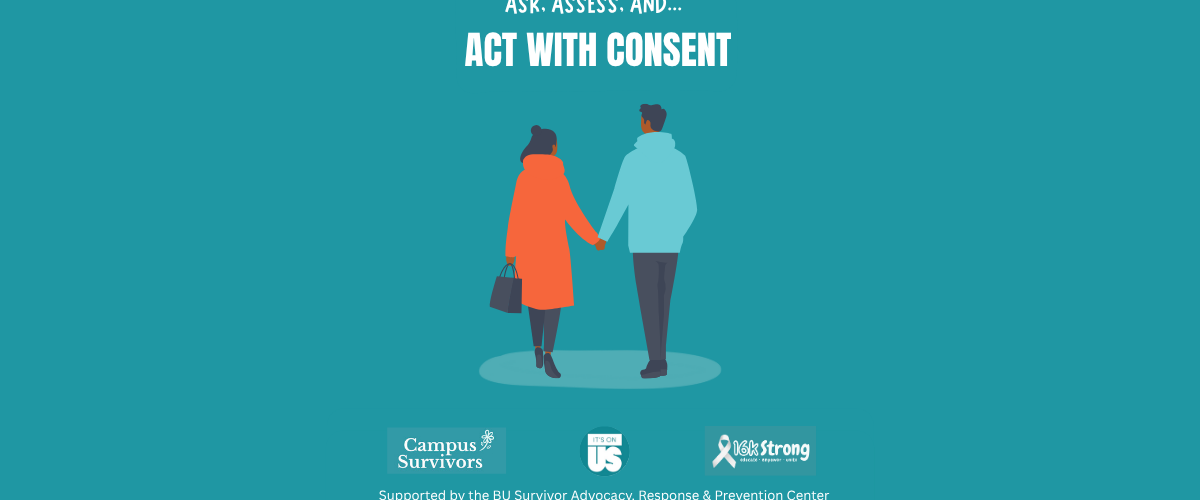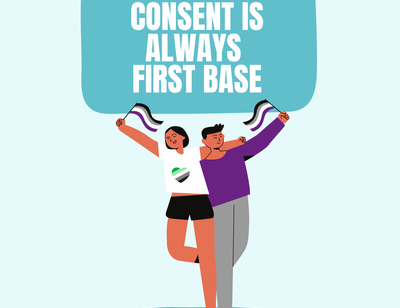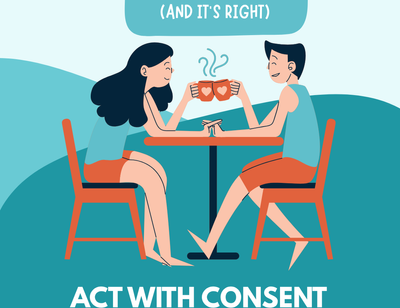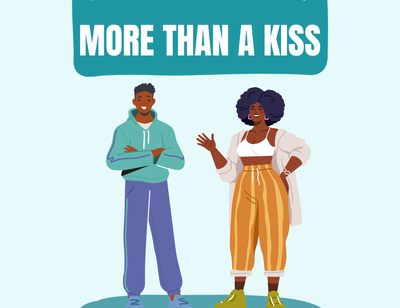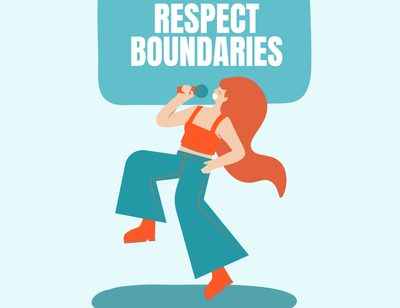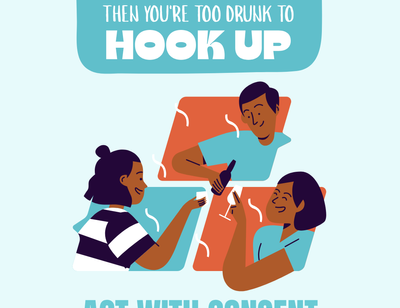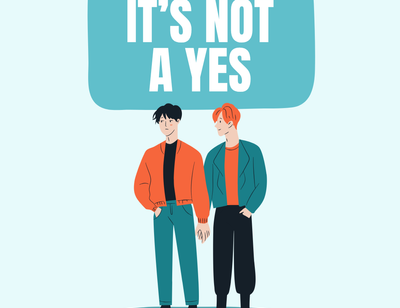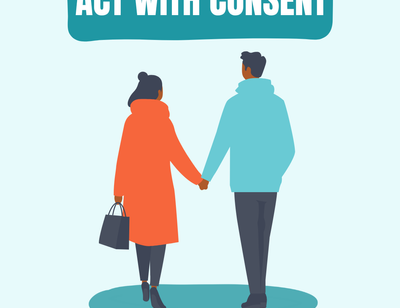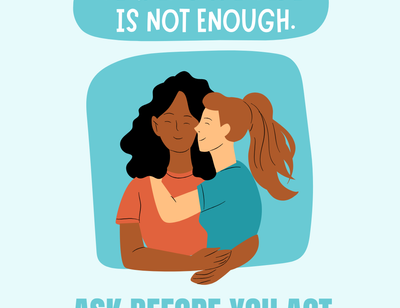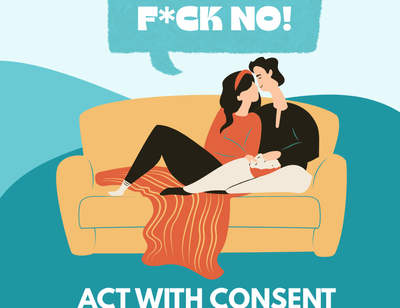About the Campaign
The objective of this campaign is to promote a campus culture where consent is understood, respected, and practiced as an active, ongoing process.
Based on student responses from a survey conducted through the student government, students feel that there is not enough education or awareness surrounding the nuances of consent and interpersonal violence, and receiving this education could have prevented harmful situations from arising or escalating.
Most students mentioned that they lacked a comprehensive sex ed curriculum in high school and gained most of their knowledge from peers, experimentation, and/or the internet. This creates inconsistencies in how students interact with one another regarding safe and consensual practices among the student body. Thus, it is important to have a standardized way of providing positive and educational messages to students to compensate for these differences. Many survivors also indicated that their perpetrators did not recognize their actions as harmful or seemed unaware of the full impact of their actions. They believed that there are aspects of the environment and culture, such as substance misuse, toxic masculinity, misogynistic beliefs/attitudes, and subconscious peer pressures, among others, that contributed to the harm that was inflicted. Thus, it is important to counteract the influences of media, cultural, and social factors on a university-wide level to reach every student without triggering them, which can be done in the form of an educational campaign.
The vision for this campaign is to use slogans and relevant examples of what a healthy relationship or sexual interaction looks like, particularly addressing the grey areas that can be confusing to navigate on the spot. Common concerns that were mentioned by students include:
- initial vs. ongoing consent,
- affirmative consent vs. lack of a no,
- being afraid of a situation turning awkward if you say “no”,
- fear of killing the vibe by asking for consent explicitly,
- people not being able to handle rejection well,
- blurring/crossing boundaries,
- pressure/coercion,
- thinking that you “should” do something because “other people do”,
- a lack of communication throughout intimacy leading to false assumptions being made,
- ignoring non-verbal cues of hesitation or discomfort,
- a belief that consent and respect don’t matter in casual interactions,
- a sense of entitlement, etc.
The goal would be to address and counter these concerns and provide an alternative solution or guidance on how to navigate these issues. The messages and examples should aim to challenge the harmful notions that are most normalized in our culture by using simple and memorable phrases that get the point across, and the hope is that repeated exposure to them could at least subconsciously alter how people think about consent. By making it less black and white and focusing on small, relevant tips that can be applied in real-life circumstances, we can cover a breadth of issues beyond just the stereotypical scenarios that people associate with sexual assault.
Campaign Values
We want everyone to Act With Consent and we hope that you demonstrate engagement with this campaign for the right reasons and actively uphold the campaign values. The values of the campaign are:
-
- Integrity – Make sure your words match your actions and behaviors; adjusts actions and behaviors when you fall short.
- Inclusion – Your perspective matters and so do the perspectives of those who are underrepresented, most impacted, and carry unique experiences. Be intentional about how you share your perspective and how you create space for others to share theirs as well.
- Community – We’re interconnected and the actions that one of us takes impacts all of us. Never forget that we are not alone in this work, to ask for support, to give support, and be conscious of all that you do and don’t do to impact others.
- Change – While interpersonal violence and trauma exist in our world there will always be opportunities to shift towards a way of being that eradicates these issues. No change is too small.
- Reflection – We have all done things we are not proud of and need to grow from.
- Survivor Centered – There are people who have been directly impacted by trauma and the actions we take in supporting a campaign should always consider the impact we have on them. As groups and individuals, we must be conscious of engaging in a way that does not cause them further harm.
If you do not demonstrate the values of the campaign, we may request that you take a step back from promotion while you assess your groups and/or your group members’ actions and behaviors that do not align.
Examples of not living the campaigns values include but are not limited to:
-
- Violating BUs code of conduct as it relates to interpersonal violence
- Publicly supporting harm or harm doers
